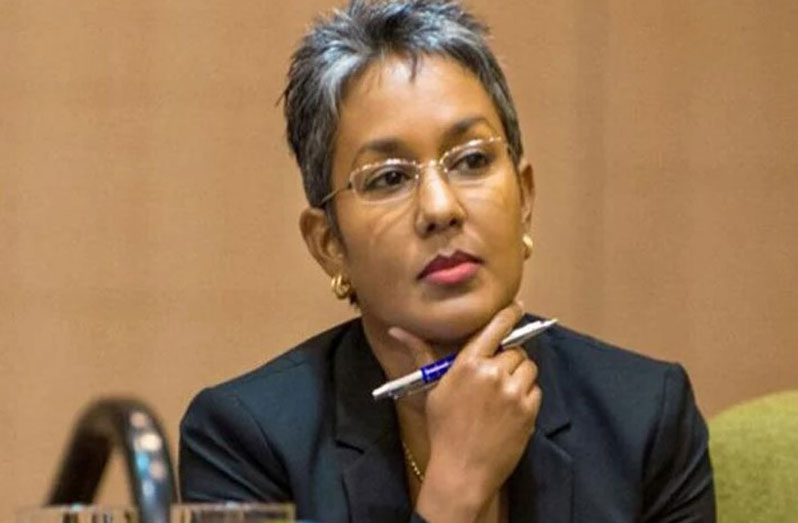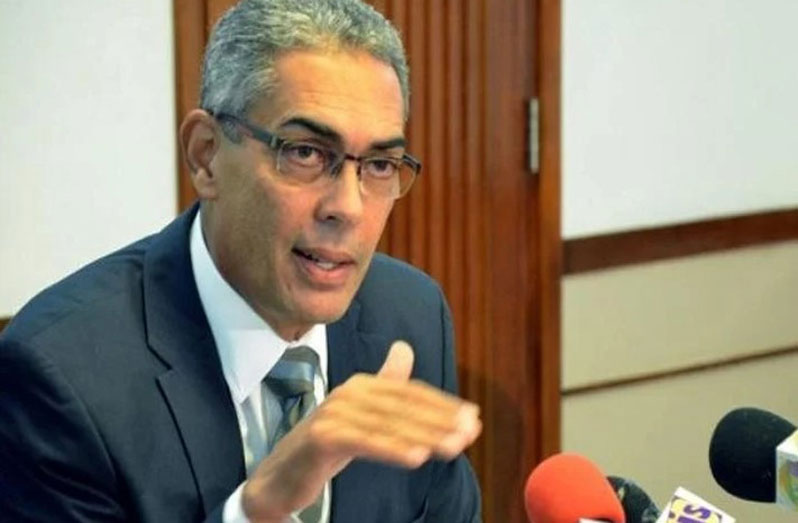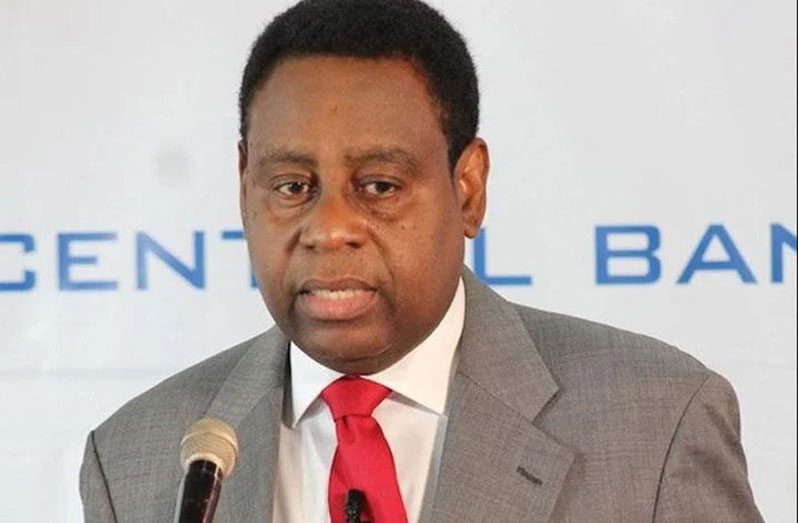–three regional economists advise
(Trinidad Express) AS INFLATION rates climb throughout the Caribbean, Governor of the Central Bank of Barbados, Cleviston Haynes, is cautious about wage adjustments to match it.
“A wage adjustment to match inflation is really not the first best option for us,” Haynes said at an inflation discussion hosted by the Central Bank of Barbados, on Thursday night.
Haynes said that once wages increase, there will be increased prices across the board.

He observed that in Barbados, they had experienced this in the late 70s early 80s “where we tried to match the price increases with the wages and all you had really was very high inflation until probably the late 80s.”
Caribbean economist Marla Dukharan observed that the pressure of higher prices is universal but it affects those at the lower income levels and those with fixed incomes like pensioners disproportionately.
“And in these cases, I think the State must intervene to ensure that the disadvantaged among us are supported appropriately,” she said.
Haynes explained that the lower income bracket will be greatly impacted by inflation because they spend more of their time and more of their income on food than those who have higher incomes.
He related that the region is importing inflation, as 40 per cent of imports in the region are related to food and energy.
“So, if you have significant price increases in those areas, then that gets fed into our economies because the Caribbean economy is interdependent with the rest of the world.

“And what you have to appreciate here is that the supply shock that we are facing right now is impacting largely food and impacting energy. The high-ticket items have been food and energy and that is what really is driving the inflation rate,” Haynes said.
In some countries, the focus is not on the headline inflation rate, but really on what they call the core inflation rate, that is you take out food and energy because those are the things that you really have very little control over, and then you try to focus on the underlying inflation rate.
“So, in terms of how we address the impact of these prices on the average citizen is really to be able to frame targeted measures that are perhaps time bound because the food increases and the energy price increases are really likely to be transitory,” Haynes said.
He related that oil prices are traditionally volatile and that the expectation is that it will taper off at the end of the year or in 2023.
“So, we run the danger of trying to have wage increases that are adapting to inflation, which is a temporary cycle. And when these things change, you already embedded those wage increases in and therefore they’re more difficult to reverse.
“So, you need, I think, transfers perhaps that are time bound. So, you may be doing it for a particular period of time, so as to be able to allow people to be able to adapt, but it’s not a permanent feature of the government’s expenditure or tax or tax system,” Haynes related.
Governor of the Bank of Jamaica, Richard Byles, echoed Haynes’ sentiment. He said in Jamaica, for the month of March, the country recorded 11.3 per cent inflation, with 76 per cent of it being attributed to food and energy.
“So, I think that Governor (Haynes) has made a really important point in managing wage expectations which are genuine and need to be met. We need to do it in creative ways that allows for when inflation deflates or when we have deflation, that we’re not stopped with these high costs up at the top,” he said.
Dukharan said that wage adjustments should match productivity.
“Wage earners who are currently engaged in salary negotiations or unions negotiating on their behalf will likely ask for wage increases commensurate with inflation. However, one thing important to remember is that, in the absence of increases in productivity, wage increases that simply reflect inflation and which are completely delinked from performance, will only serve to make whatever you are producing uncompetitive over time and drive you out of the market; this doesn’t benefit anyone.
“We have to ensure that when we are negotiating for higher wages, we are also adding higher value,” she said.
With the US inflation rate at a 40-year high, the US Central Bank, on Wednesday, announced its biggest rate increase, lifting its benchmark interest rate by half a percentage point, to a range of 0.75 per cent to 1 per cent after a smaller rise in March.
India’s Central Bank also announced a surprise increase to its benchmark rate. Meanwhile, Australia’s Central Bank recently enacted its first interest rate hike in more than a decade.
“Inflation is much too high and we understand the hardship it is causing,” Federal Reserve Chairman, Jerome Powell, had said during a press conference in Washington on Wednesday.




.jpg)










